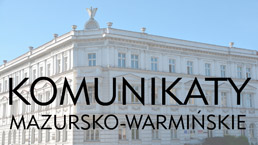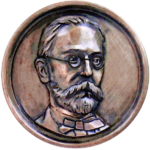Current issue
Online first
Special issues
Archive
About the Journal
Editorial Board
Editorial Council
Reviewers
Editorial guidelines
Publication ethics
Guidelines for reviewing
Remarks on “ghostwriting”
Copyrights and Open Access rule
GDPR Privacy Notice – for the authors of articles sent for publication in the "Komunikaty Mazursko-Warmińskie ("Masuro-Warmian Bulletin")
Contact
Price list
Bishop–vagrant in Masuria region
1
Bydgoska Szkoła Wyższa
Online publication date: 2019-07-20
Publication date: 2019-07-20
KMW 2019;304(2):284-316
KEYWORDS
TOPICS
ABSTRACT
Social changes in Masuria region after 1945 had a dramatic course due to the intensive population exchange and the introduction of “recovered territories” to the area of the new unitary Polish state. The newcomers
brought with them their own, often complicated, history, often treating Masuria as an asylum. Ignacy Wysoczański
(1901–1975) belonged to such unconventionally progressive people. He was a bishop of various Churches and
tried – without any backgrounds – to settle in the Old–Believers enclave of Masuria.
CITATIONS (1):
1.
Plany utworzenia nowej unii kościelnej słowiańsko-ormiańskokatolickiej w Polsce w latach trzydziestych XX wieku
Tomasz Krzyżowski
Lehahayer
Tomasz Krzyżowski
Lehahayer
We process personal data collected when visiting the website. The function of obtaining information about users and their behavior is carried out by voluntarily entered information in forms and saving cookies in end devices. Data, including cookies, are used to provide services, improve the user experience and to analyze the traffic in accordance with the Privacy policy. Data are also collected and processed by Google Analytics tool (more).
You can change cookies settings in your browser. Restricted use of cookies in the browser configuration may affect some functionalities of the website.
You can change cookies settings in your browser. Restricted use of cookies in the browser configuration may affect some functionalities of the website.




